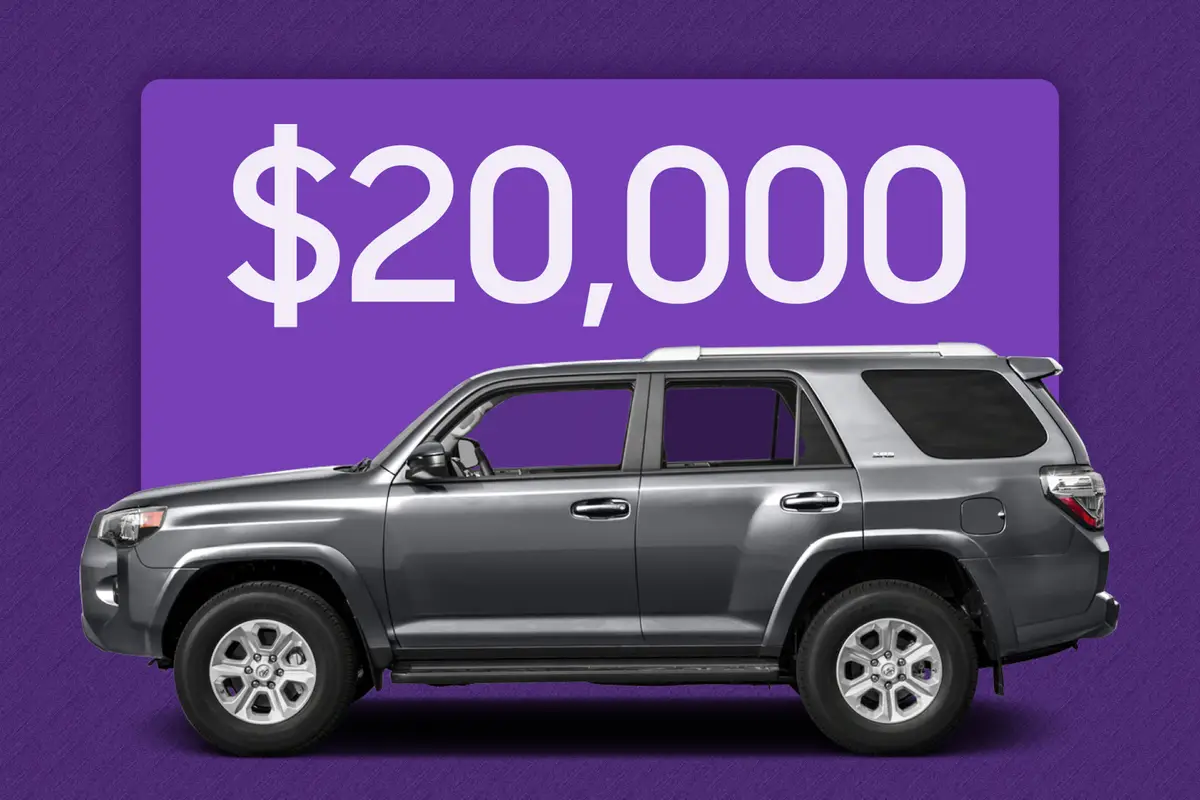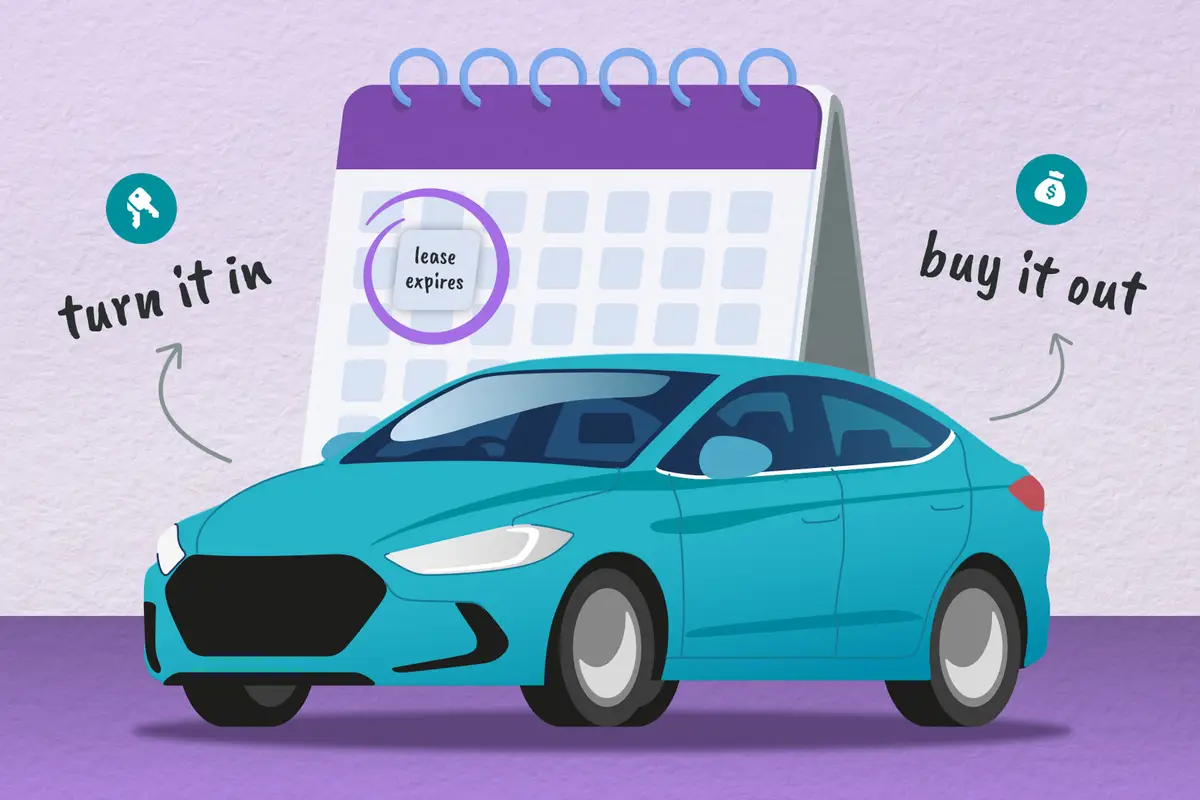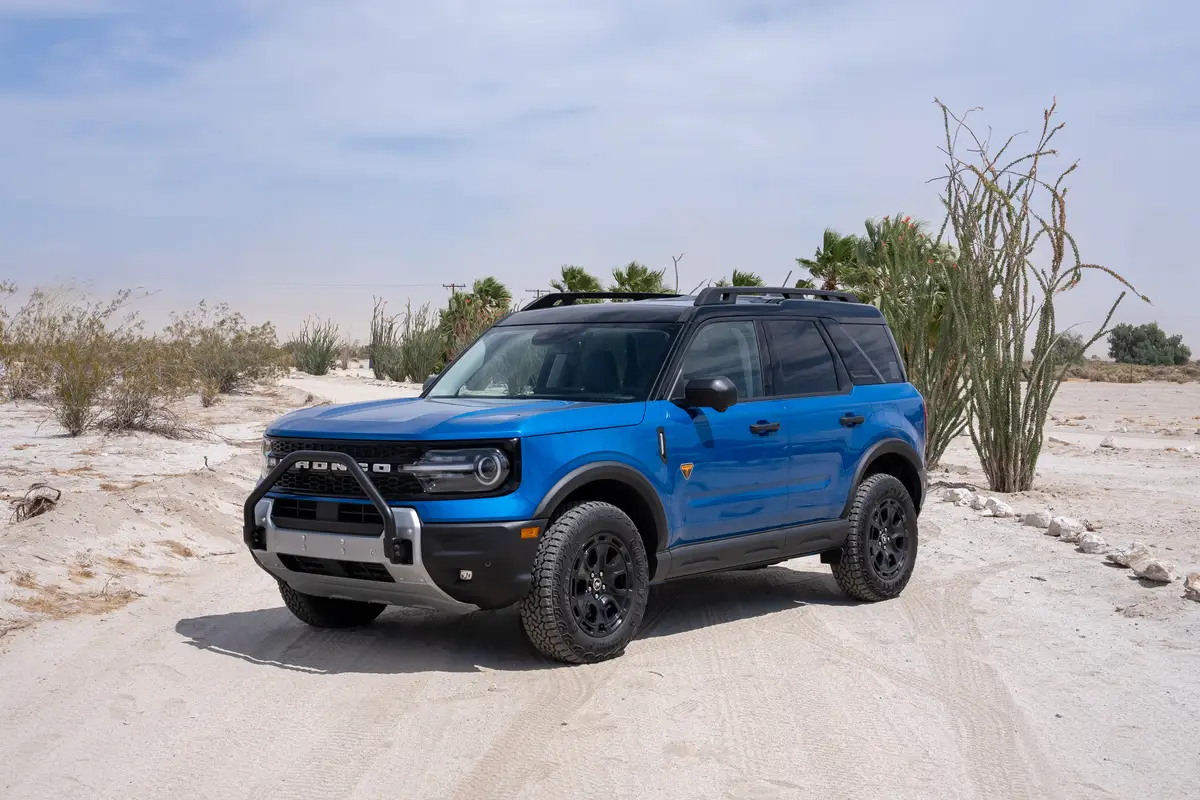Luxury SUV Face-Off: Jaguar F-Pace Versus Volvo XC90

CARS.COM — Earlier this year, our long-term 2016 Volvo XC90 battled the redesigned 2017 Audi Q7 in a head-to-head comparison and emerged with a convincing win over the German luxury SUV. When another new luxury SUV — the 2017 Jaguar F-Pace — entered our test fleet recently, we knew we had to see whether it could hold its own against the Volvo.
Related: Volvo XC90 Versus Audi Q7: Luxury SUVs Go Head-to-Head
Jaguar was one of the last luxury brands without an SUV in its lineup before the F-Pace, but the new Jaguar F-Pace SUV puts the focus on sport more than utility with its sleek roofline and choice of available supercharged V-6 engines.
In this way, the two-row F-Pace differs from our three-row Volvo XC90, which follows a more traditional luxury SUV formula featuring comfort and refinement at its center. Despite the differing approaches to luxury, the as-tested prices of these two SUVs are relatively similar: $66,265 for the XC90 T6 all-wheel-drive Inscription and $70,735 for the F-Pace 35t R-Sport.
After driving the two SUVs and evaluating their various features, a clear favorite emerged. Check out below to see how the two fared in different categories and which rose to the top.
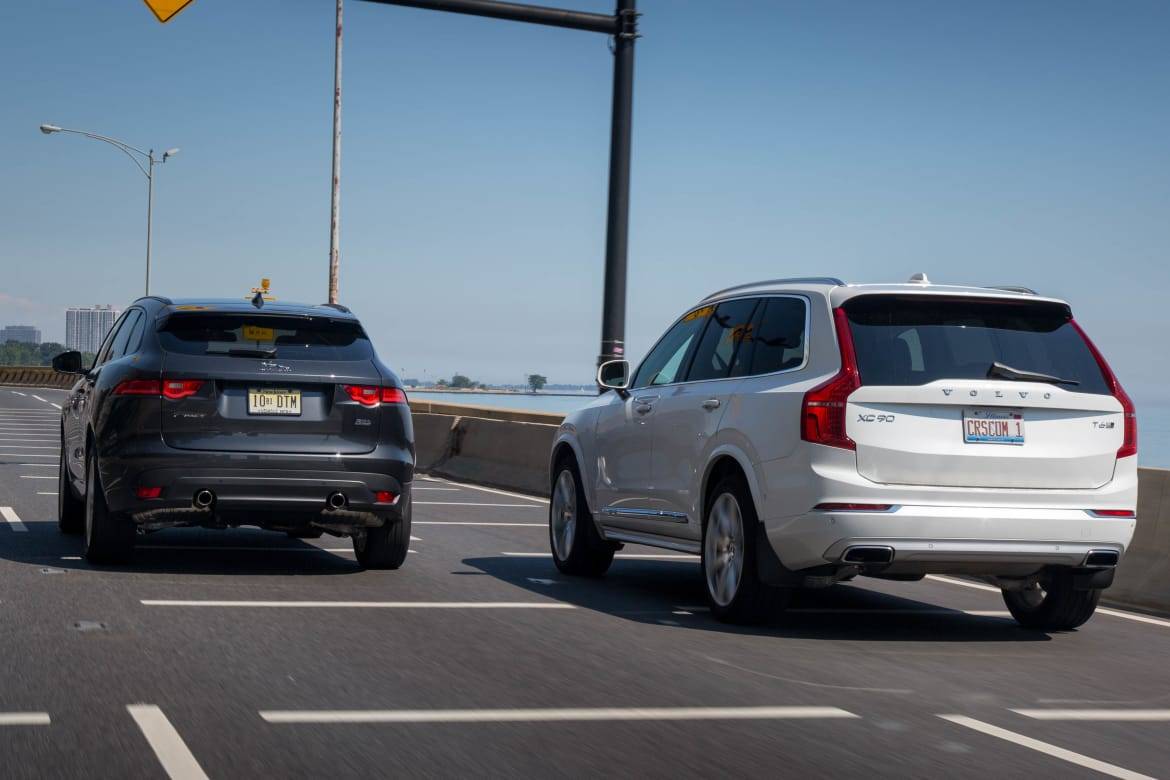
Acceleration
Winner: Jaguar F-Pace
The F-Pace’s supercharged V-6 delivers more eager acceleration than the XC90’s supercharged and turbocharged four-cylinder engine, and more immediate gas pedal response helps the Jaguar’s cause as well. Activating the XC90’s Dynamic driving mode removes much of the gas pedal’s sluggishness, but the mode is a little too aggressive for everyday driving. The F-Pace’s Normal driving mode feels right whether you’re driving the SUV hard or not.
Ride Quality
Winner: Volvo XC90
Whether driving in city traffic or cruising on the highway, the XC90 feels supremely composed and confident. The optional air suspension is comfortable, but it transmits more pavement cracks and bumps than you might expect. It’s more forgiving overall than the F-Pace’s setup, however, which lets you feel a lot of road imperfections and produces the occasional harsh response.
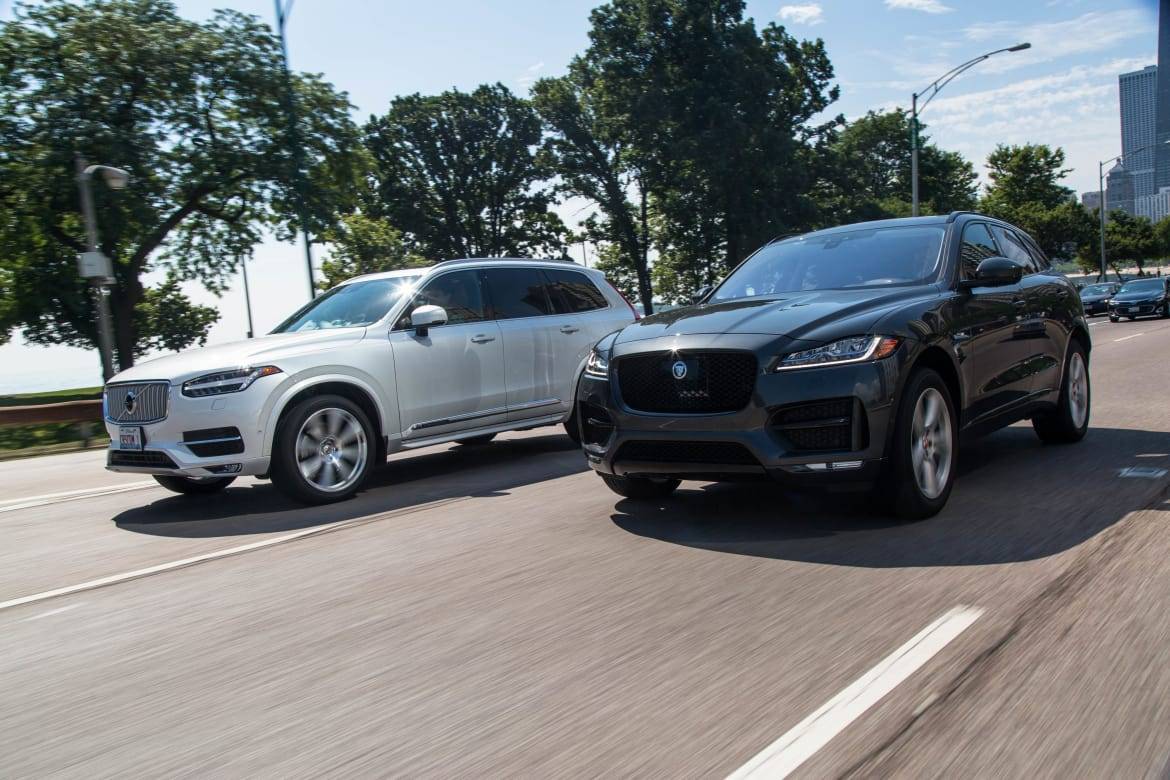
Handling
Winner: Jaguar F-Pace
The XC90 sags into corners with notable body roll and numb steering that prevents it from ever really feeling sporty. The F-Pace, meanwhile, feels more like a tall-riding sport sedan than an SUV with its excellent steering, minimal body roll and solid road-holding.
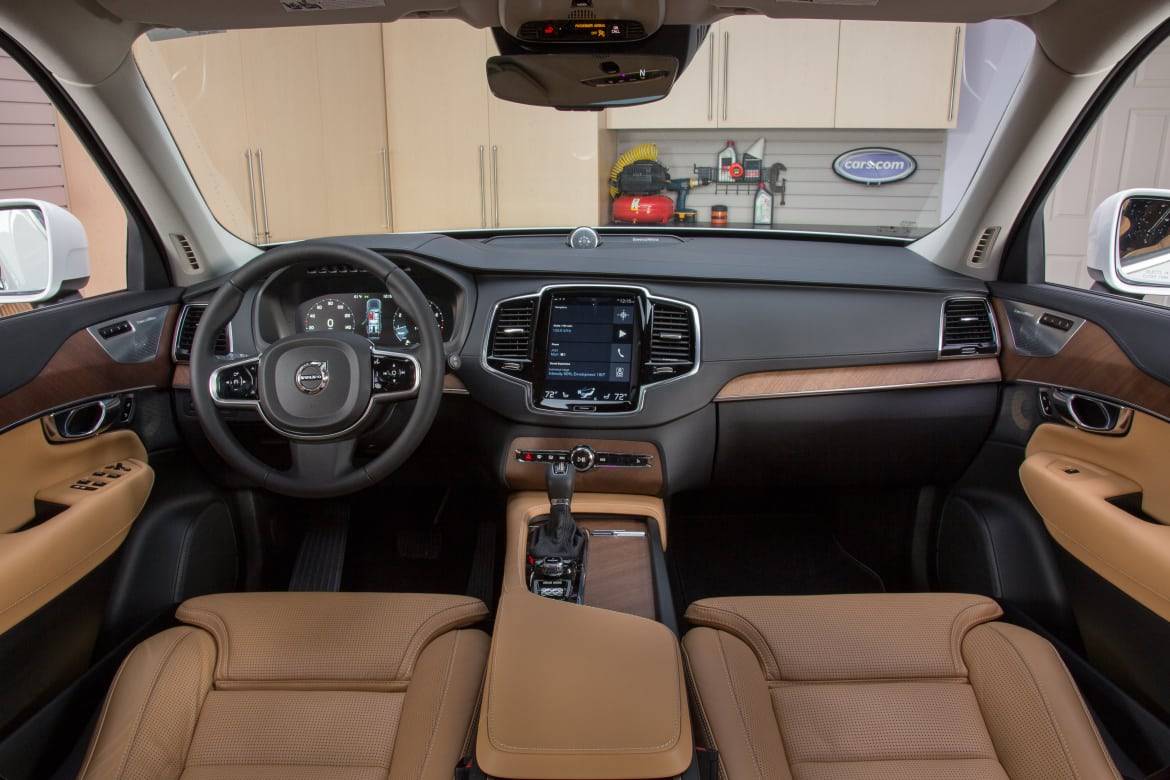
Interior Quality
Winner: Volvo XC90
The XC90’s cabin is more stylish and daring with its matte-finish wood trim and brown leather upholstery. It’s also better executed than the F-Pace’s with more consistently upscale finishes. The F-Pace was also held back by more than a few poorly fitting interior pieces and no shortage of electronic glitches, such as backup camera no-shows and unresponsive stereo volume.
Seat Comfort
Winner: Volvo XC90
Both the F-Pace and XC90 have driver’s seats finished in nice leather and offer enough adjustments to make sure you’re comfortable behind the wheel, but the Jaguar’s wraparound cockpit can pin your knees and hips between bulky door trim and wide center console. The F-Pace’s second row is surprisingly accommodating considering the SUV’s low roofline, but the XC90’s seats are equally comfortable and the Volvo edges ahead thanks to its airier, more spacious cabin.
Visibility
Winner: Volvo XC90
The XC90’s large side and rear windows provide good views when checking your blind spot and backing up, and various camera views and parking sensors provide another measure of security when maneuvering in close quarters. The Volvo’s remotely operated flip-down rear head restraints are great, too. The rakish roofline of the F-Pace, by contrast, exacts a big visibility penalty; its side windows are considerably smaller than the XC90’s and the tiny rear window makes it hard to see what’s behind you when reversing. The F-Pace’s camera display, however, is very crisp.
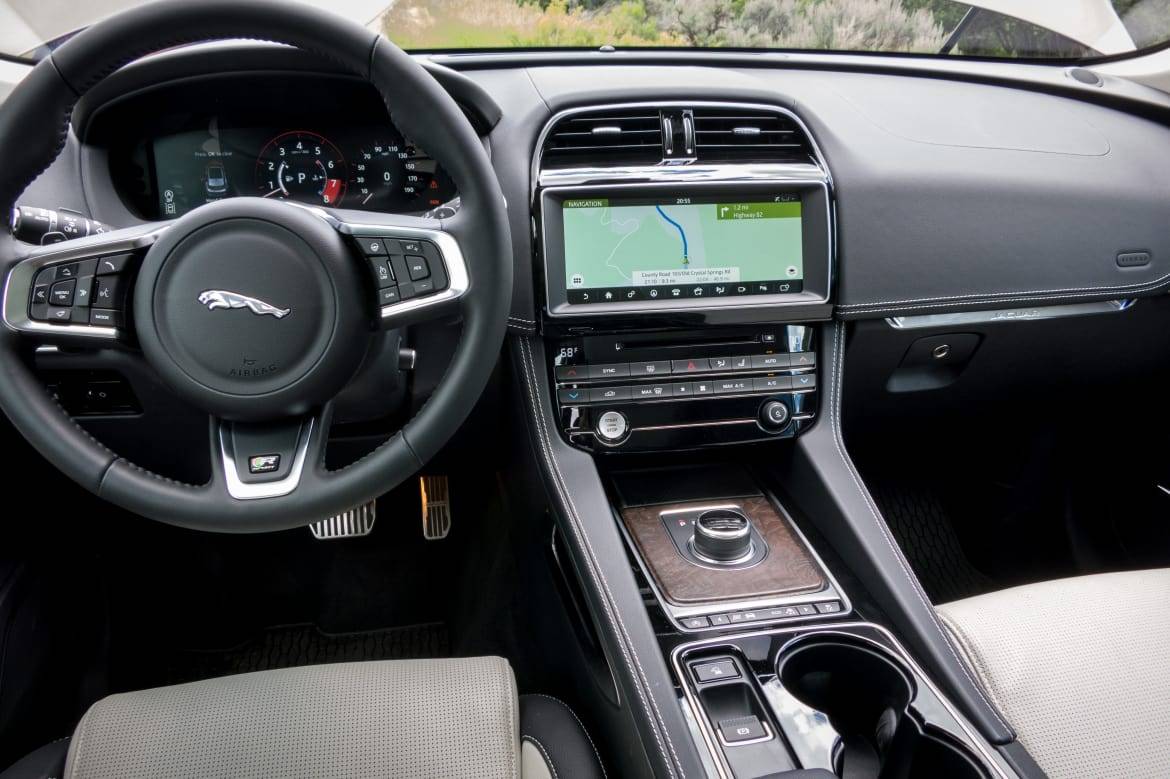
Controls and Multimedia
Winner: Tie
We appreciate Jaguar’s decision to keep the often-used air-conditioning controls separate from the touch-screen by including physical buttons on the dashboard, but the F-Pace’s optional wide-screen display comes up short from a usability standpoint with some features not where you’d expect them to be. The high-resolution screen looks great and responds quickly to commands, though. That isn’t always the case with the XC90’s touch-screen, which centralizes many vehicle controls.
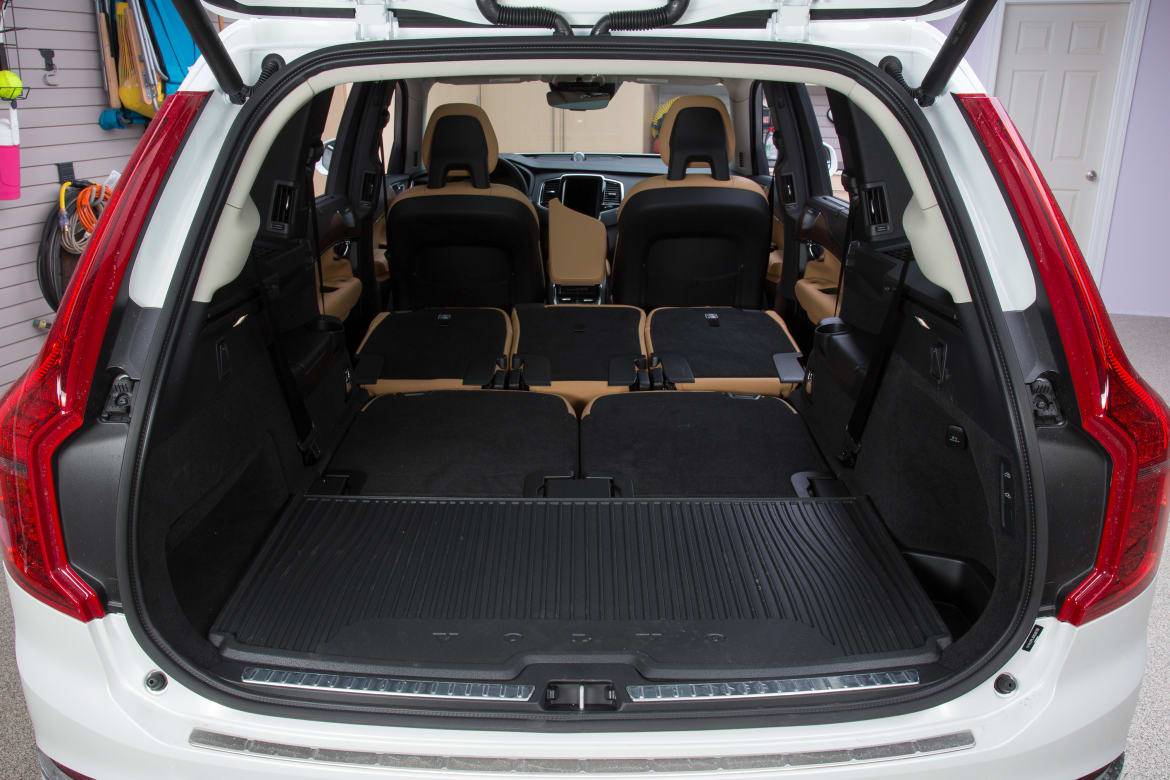
Cargo Versatility
Winner: Volvo XC90
The XC90’s additional height and length pay dividends in the cargo area. With its third row folded, the XC90 has 41.8 cubic feet of cargo room to the F-Pace’s 33.5 cubic feet behind its rear seats. The F-Pace’s rakish tail looks cool but cuts out a lot of cargo room near the liftgate. The Volvo’s cargo floor sits a little higher than the F-Pace’s, but lowering the optional air suspension makes it about level with the Jaguar’s cargo floor.
Worth the Money?
Winner: Volvo XC90
Neither car is a value choice and the XC90 and F-Pace offer radically different ideas of what a luxury SUV should be. The XC90 embodies opulence and comfort, while the F-Pace combines performance with sharp styling. But the XC90 has more seats, more cargo space, better gas mileage and a lower as-tested price. Jaguar’s excellent warranty makes up some of the difference, but the XC90 still has the edge.
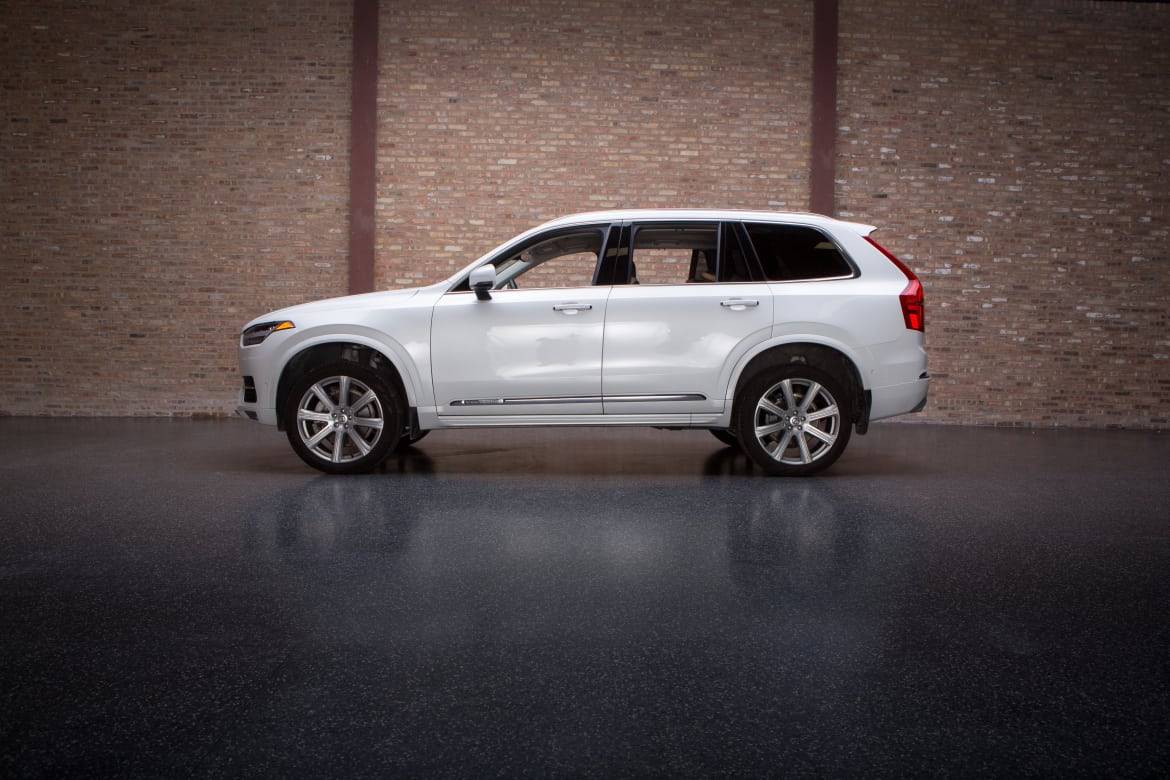
Results
It’s another head-to-head comparison and another win for our long-term XC90, which again won six of nine comparison categories — just as it did in its takedown of the Q7. Out of a possible 180 points, the XC90 received 126 to the F-Pace’s 105.
While we liked the Jaguar F-Pace’s impressive driving dynamics, these are still both SUVs, a segment where functionality and comfort rule. On these fronts and more, the XC90 was superior … and now it patiently awaits its next challenger.
Featured stories
